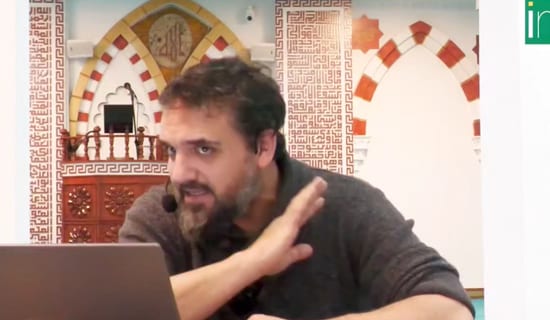In his August 15, 2010 column titled "My 'Biased' Attitude – Chemical Weapons Against the PKK" in the Turkish Fethullah Gülen community-owned daily Zaman, Orhan Kemal Cengiz first defended his decision to criticize his own country, and then went on to call for an independent commission to investigate allegations that the Turkish military had used chemical weapons to kill Kurdistan Workers Party (PKK) members.
He also wrote that Turkish Prime Minister Recep Tayyip Erdogan must "show the same sensitivity to alleged human rights violations in his own country as he shows towards the ones carried out by Israel."
The following is his column, in the original English.
"I Believe My First and Foremost Duty is to Criticize My Own Country"
"Whenever I touch upon a sensitive issue in Turkey, some readers accuse me of being biased and selective in my criticism.
"They say you are talking about the tragedies of non-Muslims, but you do not talk about the tragedies Muslims suffered in the Balkans, you do not criticize Armenians for their wrongdoings in Nagorno-Karabakh, you do not criticize this and that.
"If I were the citizen of those countries I would be very harshly criticizing them. I would be writing articles about grave human rights violations committed by Russian soldiers against Chechens. I would be criticizing the Armenian government not only for Nagorno-Karabakh, but also for torture and all kinds of human rights violations that are being carried out in Armenia right now. I would be very harshly criticizing Greece for its terrible and inhumane treatment of refugees, for its violation of the freedom of religious minorities in the country. I would be very harshly criticizing another country if I were their citizen. Of course, there are people in those countries who criticize their governments and in return are being accused of biased reporting, exactly like I am being criticized here.
SUPPORT OUR WORK

"I, of course, criticize other countries, but I believe my first and foremost duty is to criticize my own country. I do not have to mention the tragedies that Muslims suffered in the Balkans whenever I mention the suffering of Armenians in my country. Criticizing my own country is much more difficult and risky than criticizing any other country in the world. And it is exactly the same for anyone who fights against the status quo in their own country. Human rights defenders live under serious threat in Russia, China and even some European countries today. And they are always being accused of same thing: They are 'biased' against their own government. They are blamed by people who have never undertaken any risk in their life, who have not the slightest civic courage to fight against authority, who never have gone beyond the traditional boundaries. It is almost the same all over the world."
Why Does an Intellectual "Live in Exile in His Own Country?... An Intellectual is a Constant Irritant for the Status Quo"
"In my opinion it is not knowledge that makes a person an intellectual. Having an open mind and a critical attitude are core elements that make up the intellectual mind. This is best described by Edward Said, who articulates a vision of the intellectual 'as exile and marginal, as amateur and as the author of a language that tries to speak the truth to power,' by 'bearing witness' to forgotten, ignored or suppressed stories.
"Why on earth does an intellectual live in exile in his own country? Because he follows his own conscience, he would never give in to group dynamics, therefore he always runs the risk of being excluded from all groups and being labeled a marginal person. An intellectual is a constant irritant for the status quo in his own country."
Is the Turkish Military Using Chemical Weapons?
"Der Spiegel International magazine has just published an article in its August 12 edition that examines allegations of the use of chemical weapons by the Turkish military. According to the article, German forensic experts examined the photos that were allegedly taken of Kurdistan Workers Party (PKK) members who were killed in August of 2009. The experts, on the basis of the photos shown them, confirmed that these people were killed through the use of chemical weapons.
"After reading this article, I called the president of the Human Rights Association (İHD) to find out if they had any concrete evidence regarding such reports. Mr. Öztürk Turkdoğan told me that they had heard allegations of PKK militants being killed by chemical weapons, but in no case was a forensic investigation allowed. Therefore, there is no legal evidence available to bring any case against those who may be responsible for these incidents."
"Erdoğan Should Show the Same Sensitivity To Alleged Human Rights Violations In His Own Country As He Shows Towards the Ones Carried Out By Israel"
"Der Spigel's coverage goes on to say: 'In Turkey, human rights advocates have long demanded an investigation. The army, however, has refused to comment on the issue. Similarly, the government of Prime Minister Recep Tayyip Erdoğan has been stubbornly silent or tried to portray the accusations of war crimes as "PKK propaganda.'"
"I would like to urge Mr. Erdoğan to allow an independent commission to make an inquiry into these allegations. Not only these allegations, but also the alleged mutilation of the dead bodies of PKK militants -- which is somehow much more frequently talked about in different circles -- should be investigated thoroughly and diligently.
"Erdoğan should show the same sensitivity to alleged human rights violations in his own country as he shows towards the ones carried out by Israel."




